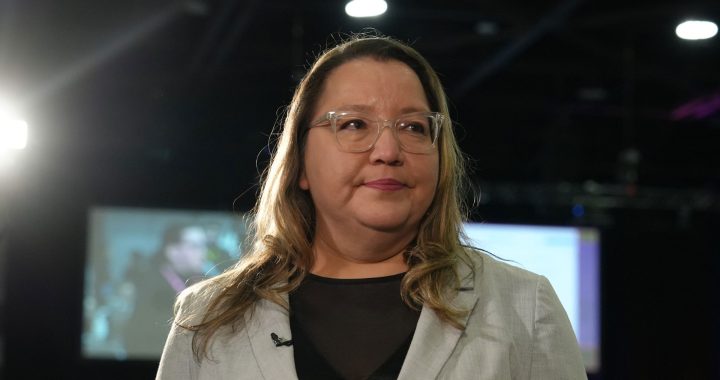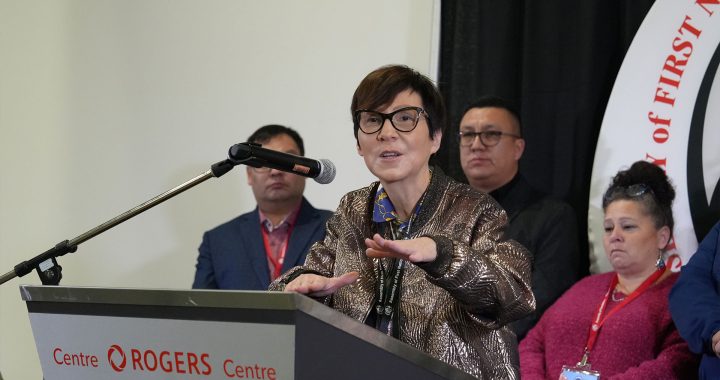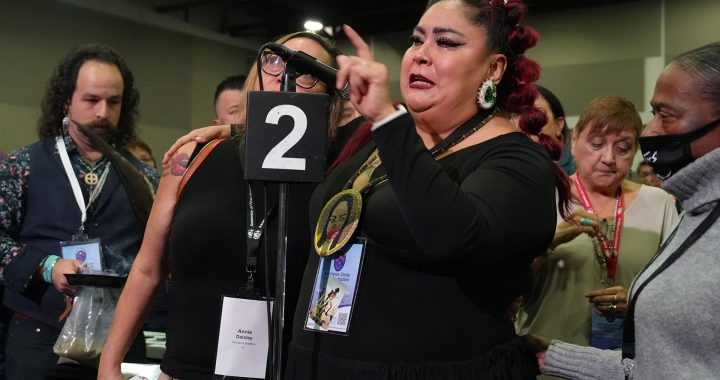Three Mi’kmaw lobster harvesters wrapped up their defence Tuesday before a Digby, N.S., judge on charges they were fishing illegally in traditional waters.
James Nevin, Logan Pierro-Howe and Leon Knockwood of Sipekne’Katik First Nation all pleaded not guilty.
They were harvesting lobster to earn a moderate livelihood when they were charged four years ago for fishing without tags by officers of the Department of Fisheries and Oceans.
Tags are issued by the federal government to keep track of the number of traps that go into the water. They also legislate how many lobsters can be caught.
Mi’kmaw communities, including Sipekne’Katik, issue their own tags under their treaty fishery management plans.
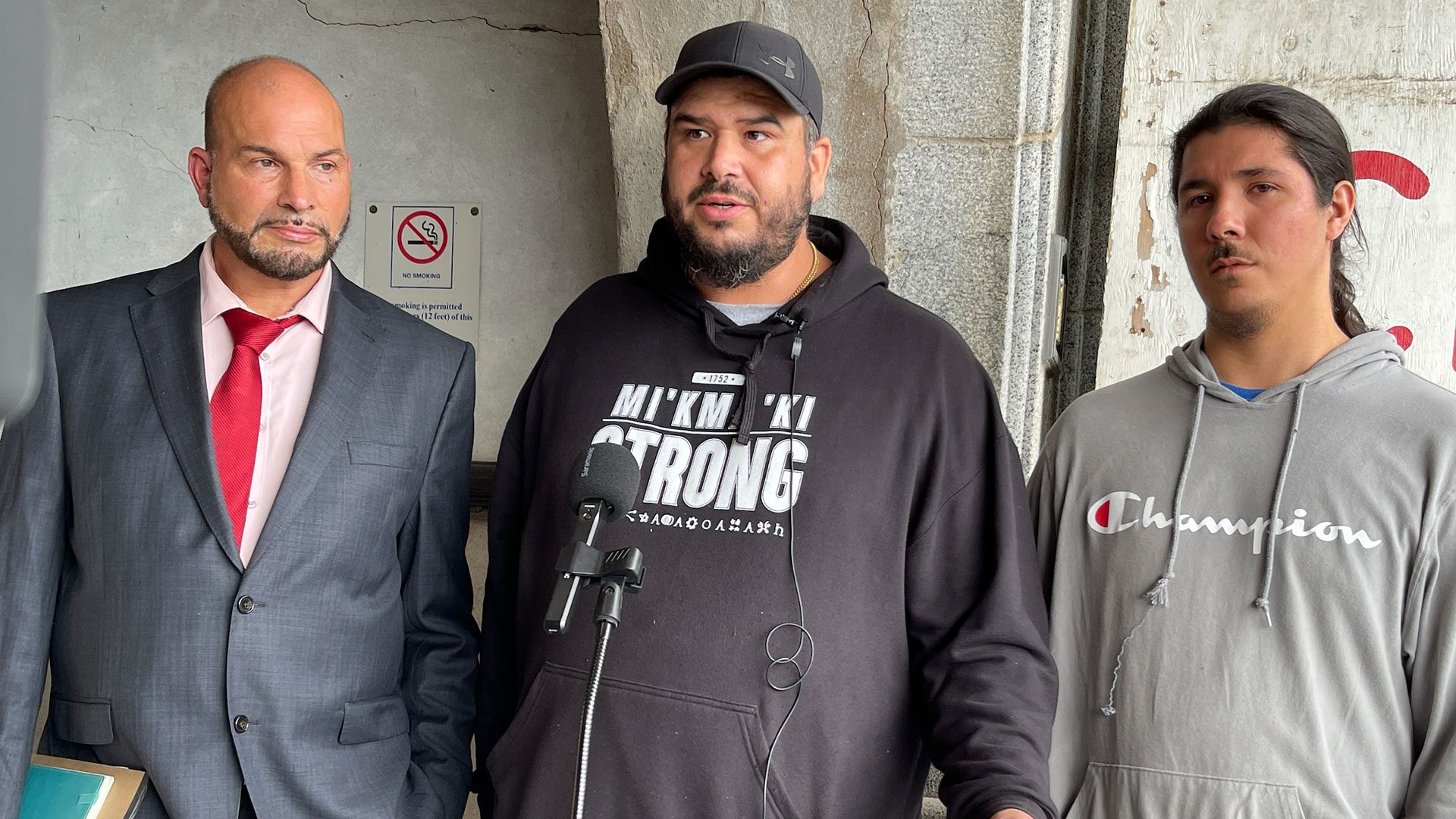
“They shouldn’t have charged us in the first place,” said Nevin outside Digby provincial court, “and I think it’s just a tactic to slow us down, you know, discourage us.
“But I continue to keep fishing since this charge happened, so it’s not stopping me.”
Mi’kmaw say they have a right to fish under the Peace and Friendship Treaty signed in the 1700s. But, to date, the federal government hasn’t acknowledged that right and continues to pressure Mi’kmaw harvesters to stop.
Closing arguments in the trial Tuesday dealt with the harvester’s rights under the constitution.
Defence lawyer Mike McDonald said the treaty fishery is authorized by the band.
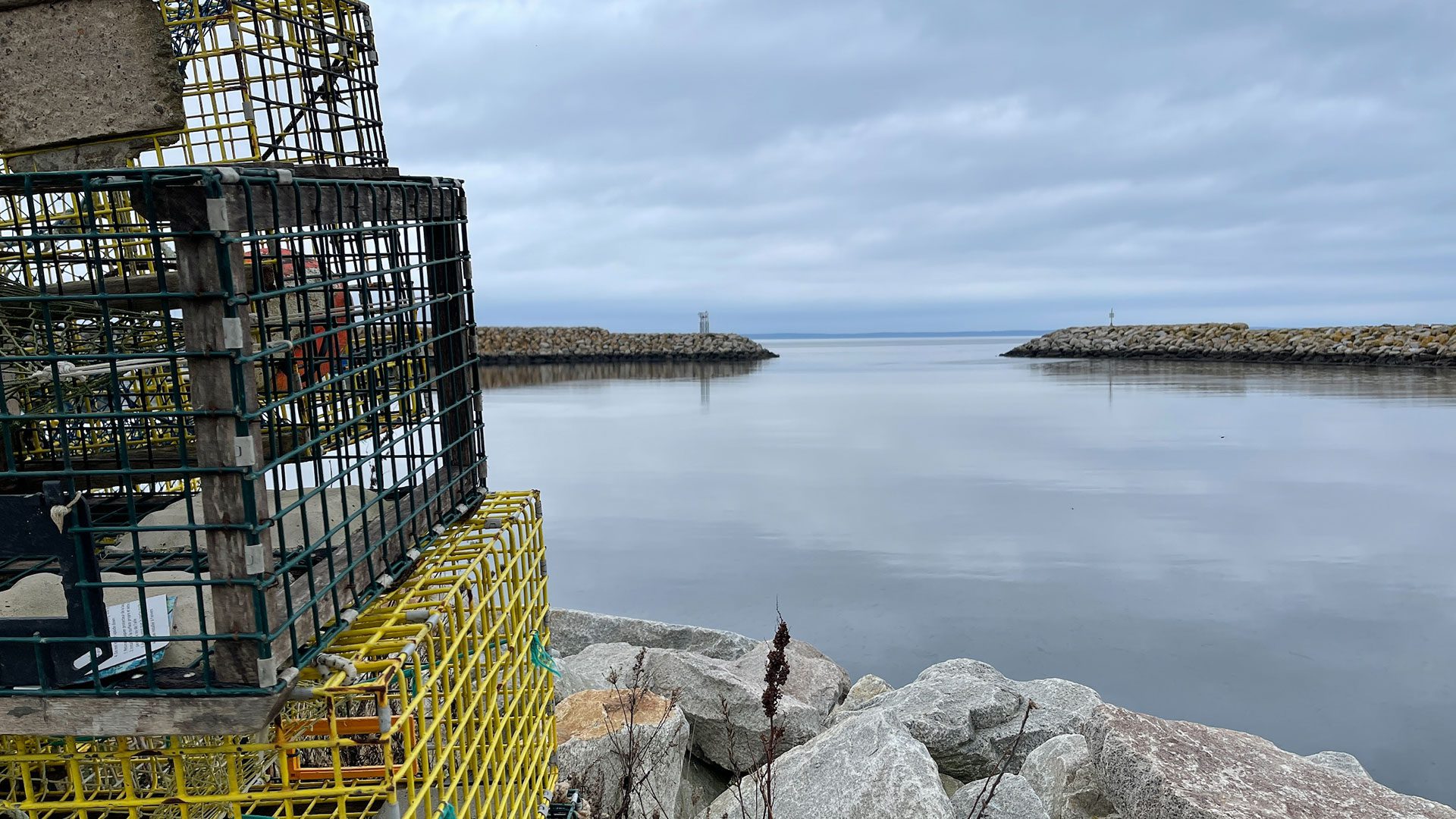
“All Aboriginal rights, according to the Supreme Court of Canada, are communal rights and so the authorization came from the band,” said McDonald.
“The fisheries manager and former chief both stated that the band at the time that my clients were arrested, they were authorized to go fish for a moderate livelihood and that’s exactly what my clients were doing.”
The charges were laid four years ago when fisheries officers met the fishermen at the Sissaboo Wharf in southwestern Nova Scotia.
Last month, Nevin said he again harvested lobster under the Sipkne’Katik treaty fishery to earn a moderate livelihood.
It’s a right, he said, the court needs to recognize.
“I just hope that the judge makes the right decision, you know, prove that we are not guilty for what we did because we’re doing the same thing,” he said. “Like I said previously – and we’re innocent.”
Judge Timothy Landry said he would release his decision in January.






